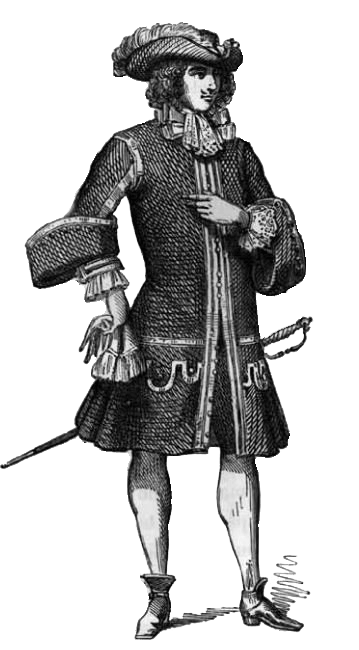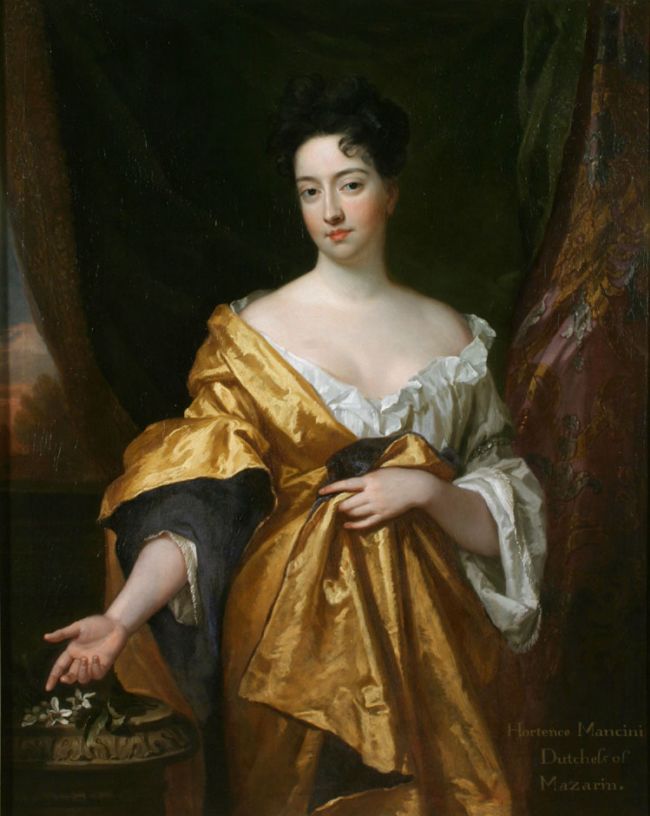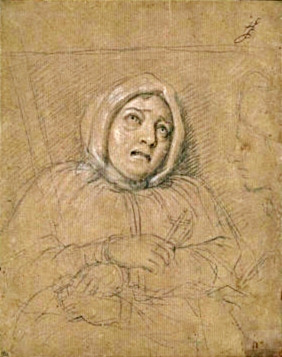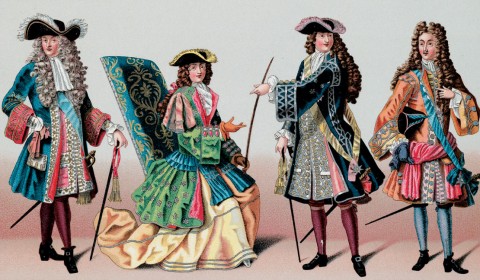Marie-Anne Mancini, Duchesse de Bouillon
Born in 1649, to Girolama Mazzarini, sister of Cardinal de Mazarin, and Lorenzo Mancini, a Baron and necromancer, Marie-Anne Mancini was the youngest of the five famous Mancini sisters, who along with their Martinozzi cousins became known as the Mazarinettes.

Marie-Anne Mancini was the last to join her sisters, brothers and cousins in France. Aged only 6 upon her arrival, and said to be a charming and slightly flippant child, she quickly became the darling of the court and her uncle Mazarin. She was considered to be a witty beauty. Even more than her older sister Hortense, Cardinal de Mazarin’s favourite niece. Marie-Anne is often referred to as “the wittiest and most vivacious of the sisters.” According to a contemporary, she was, “said to be quite divine, having infinite appeal.” Self-possessed, she excelled at such courtly diversions as dancing and plays.
Shortly after her arrival in France, according to the memoirs of her sister Hortense, the court and Mazarin played a trick on the six-year-old girl. Teasing the girl about an admirer she was supposed to have, the Cardinal reproached her and claimed she must be pregnant. Marie-Anne was rather sceptical, even as the joke continued with the Cardinal ordering to make her gowns tighter, thus implying she got larger and was with child. She still continued to deny it, as, one day, Hortense tells us it was a new-born babe, others speak of a baby doll, was placed in her bed. The court came to congratulate the new mother, including Anne d’Autriche, which offered to act as Godmother. The court, rather amused, pressed the child to state who the father was and an astonished and still quite unbelieving Marie-Anne replied it can only be the King or the Comte de Guiche, because those were the only ones who kissed her.
As her oldest sister Laure, Duchesse de Mercœur, died in childbirth in 1657, Marie-Anne, despite her young age, was given her sister’s three sons, Louis-Joseph, Philippe and Jules-César, to raise. The youngest child, Jules-César, died three years later, in 1660. The two older boys, Louis-Joseph and Philippe, became soldiers, with Louis-Joseph eventually gaining fame as a general.
In 1661, the night before the Cardinal’s death, Henri de La Tour d’Auvergne, Vicomte de Turenne, celebrated soldier and marshal, came to his bedside to ask for the hand of Marie-Anne in the name of his nephew, Godefroy Maurice de La Tour d’Auvergne, Duc de Bouillon. About a year later, on 22 April 1662, Marie-Anne wed the Duc at the Hôtel de Soissons, in the presence of Louis XIV, his mother and wife.
Her husband was a good soldier, but a bad courtier and even worse literary man. As a result, the intelligent and ambitious fifteen-year-old Duchess was left on her own to pursue her political and literary interests. She established a small salon at her new residence, the Hôtel de Bouillon. Marie-Anne and her husband had seven children born between 1669 and 1679, five boys and two daughters, of which all but one survived childhood.
As Duchesse de Bouillon, Marie-Anne became patron of the young Jean de La Fontaine. Some of La Fontaine’s liveliest verses are addressed to the Duchesse and it is even probable that the taste of the Duc and Duchesse influenced him with the writing of his first work of real importance, the first book of the Contes, which appeared in 1664.
Marie Anne was socially and politically compromised in the notorious Affaire des Poisons, allegedly for planning to poison her husband in order to marry her nephew Louis-Joseph, Duc de Vendôme, whom she had raised. Unlike her older sister, Olympe, which was forced to flee to Spain in order to escape arrest, Marie-Anne was never punished by Louis XIV… but for other reasons asked to refrain from attending court several times… namely her need to discuss everything. She loved the company of thinkers and poets, and gathered those around herself who were less appreciated by the court. The Duc gave her freedom to do as she pleased and her affairs were generally overlooked, apart from one, with the Duc d’Albret, her husband’s brother. Marie-Anne was sent to spend some months in a convent.
She died on June 20 in 1714 in Clichy, northwest of Paris.




